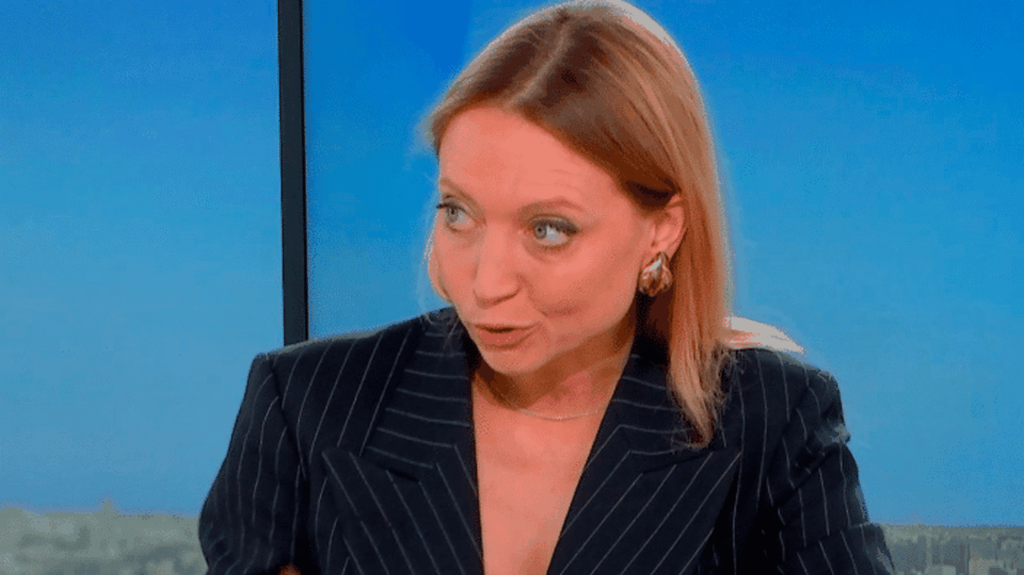/2025/11/19/aurore-lalucq-691e150264fed019427842.png)
Aurore Lalucq, president of the Committee on Economic and Monetary Affairs at the European Parliament, co-president of Place publique, is the guest of Tout est politique, Wednesday November 19.
This text corresponds to part of the transcription of the interview above. Click on the video to watch it in full.
France info: The Paris prosecutor’s office, we learned late this afternoon (Wednesday November 19), has opened an investigation against a Grok for negationist remarks. Thank you, Emma Vincent. Aurore Laluc, you deal with these questions in particular in the European Parliament.
Aurore Lalucq : Yes, in fact, I filed a complaint against Elon Musk at the beginning of this year, precisely, when we saw that X was starting to be used differently and that even when we were not subscribed to Elon Musk’s account, we saw it appear absolutely everywhere. The reality, which is very, very worrying, is that he uses his social network like a newspaper. It’s as if he had the 8 p.m. news of a very large TV channel, worldwide, every second.
And it is indeed a tool of propaganda and destabilization within the European Union, since we see very clearly that sometimes it attacks certain German, British and Spanish governments. He tries to destabilize them then he always comes to support the same ones, each time far-right parties, (…) within each country. So there is a real subject, and I think we are going to talk about sovereignty today and it really makes a connection. We must become sovereign over our own techniques.
So far, have we done it early enough? Have we measured the scale sufficiently? Do you all agree, (…) with the other European countries, on the urgency of the situation?
No, we weren’t fast enough. There was not enough awareness. Some actors raised the alarm, but there was no early awareness. Afterwards, in fact, if we want, we can. That’s what we need to tell ourselves. We had the best engineers in the digital field. Many have gone to California, we already have to bring them back. But we still have some on European soil and on French soil. We must give European preference in this area, because it is an industrial question.
What does European preference mean, concretely?
Concretely, I am currently touring companies to have industrial sovereignty at European level. I see that we have Murena, a company, for example, French, which makes smartphones, without Google, independent from the Americans. Typically these people need to be supported. We have Stella, again a European payment infrastructure, because I remind you that everything we pay today goes through Visa, Mastercard. When you pay, you pay with American infrastructure. We are no longer autonomous in anything. It’s the same, these people, we have to support them.
Yesterday, I was at Alta Ares, which makes interceptor drones, which were received by Emmanuel Macron and Vladimir Zelensky. 85% of their components come from Europe. It’s the same, we have to support them. And that requires permanent public procurement. That is to say that it is really necessary that on a certain number of strategic companies for us, (…) we give preference, to public procurement. Rather than helping, providing subsidies, etc., or cutting taxes, I think we must go through public procurement today to help all these companies and regain control.
Should this be done at European level or at national level?
Both. For example, here I see that in France, France has given its copy on the list of arms industries which can benefit from European aid. I think there will be some big companies on this list. There must also be startups, we must work better together, as we can do for example in Germany. But then, yes, it must also be done at European level.
And this is where it starts to get a little bit more complicated. Even if there are lines that have fallen, that is to say that we can clearly see that Germany is spending money, it is still quite new, that it is investing enormously in defense. It becomes a little French, Germany, finally. So there are divisions, taboos like that which are falling. But yes, we can see it clearly, particularly with certain Nordic countries, there is a pro-American character that we have difficulty letting go of and some say to themselves: well, come on, Trump, it’s a parenthesis. At the end of the endings, it’s going to go back to the way it was before, but everyone getting along, that’s not true.
Click on the video to watch the full interview


